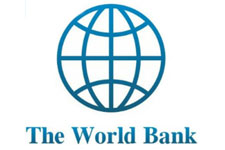WB, India sign $750 mn pact for Emergency Program for MSMEs
Published: Jul 06, 2020

By TIOLCORPLAWS News Service
NEW DELHI, JULY 06, 2020: THE World Bank and the Government of India today signed the $750 million agreement for the MSME Emergency Response Programme to support increased flow of finance into the hands of micro, small, and medium enterprises (MSMEs), severely impacted by the COVID-19 crisis.
The World Bank's MSME Emergency Response Programme will address the immediate liquidity and credit needs of some 1.5 million viable MSMEs to help them withstand the impact of the current shock and protect millions of jobs. This is the first step among a broader set of reforms that are needed to propel the MSME sector over time.
The agreement was signed by Mr Sameer Kumar Khare, Additional Secretary, Department of Economic Affairs, Ministry of Finance on behalf of the Government of India and Mr Junaid Ahmad, Country Director (India) on behalf of the World Bank.
Mr Khare said that the COVID-19 pandemic has severely impacted the MSME sector leading to loss of livelihoods and jobs. The Government of India is focused on ensuring that the abundant financial sector liquidity available flow to NBFCs, and that banks which have turned extremely risk averse, continue taking exposures in the economy by lending to NBFCs. This project will support the Government in providing targeted guarantees to incentivize NBFCs and banks to continue lending to viable MSMEs to help sustain them through the crisis.
The World Bank Group, including its private sector arm – the International Finance Corporation (IFC), will support the government's initiatives to protect the MSME sector by:
- Unlocking liquidity
India's financial system benefited from early and decisive measures taken by the RBI and the Government of India (GOI) to infuse liquidity into the market. Give current uncertainties, lenders remain concerned about borrowers' ability to repay – resulting in limited flow of credit even to the viable enterprises in the sector. This program will support government's efforts to channel that liquidity to the MSME sector by de-risking lending from banks and Non-Banking Financial Companies (NBFCs) to MSMEs through a range of instruments, including credit guarantees.
- Strengthening NBFCs and SFBs
Improving the funding capacity of key market-oriented channels of credit, such as the NBFCs and Small Finance Bank (SFBs), will help them respond to the urgent and varied needs of the MSMEs. This will include supporting government's refinance facility for NBFCs. In parallel, the IFC is also providing direct support to SFBs through loans and equity.
- Enabling financial innovations
Today, only about 8 percent of MSMEs are served by formal credit channels. The program will incentivize and mainstream the use of fintech and digital financial services in MSME lending and payments. Digital platforms will play an important role by enabling lenders, suppliers, and buyers to reach firms faster and at a lower cost, especially small enterprises who currently may not have access to the formal channels.
Mr Junaid Ahmad said that the MSME sector is central to India's growth and job creation and will be key to the pace of India's economic recovery, post COVID-19. The immediate need is to ensure that the liquidity infused into the system by the government is accessed by MSMEs. Equally important is to strengthen the overall financing ecosystem for MSMEs. This operation seeks to achieve both these objectives by furthering the role of NBFCs and SCBs as effective financial intermediaries and leveraging fintech to broaden the reach of finance into the MSME sector.
The World Bank has to date committed $2.75 billion to support India's emergency COVID-19 response , including the new MSME project. The first $1 billion emergency support was announced in April this year for immediate support to India's health sector . Another $1 billion project was approved in May to increase cash transfers and food benefits to the poor and vulnerable, including a more consolidated delivery platform – accessible to both rural and urban populations across state boundaries.
The $750 million loan from the International Bank for Reconstruction and Development (IBRD), has a maturity of 19 years including a 5-year grace period.



